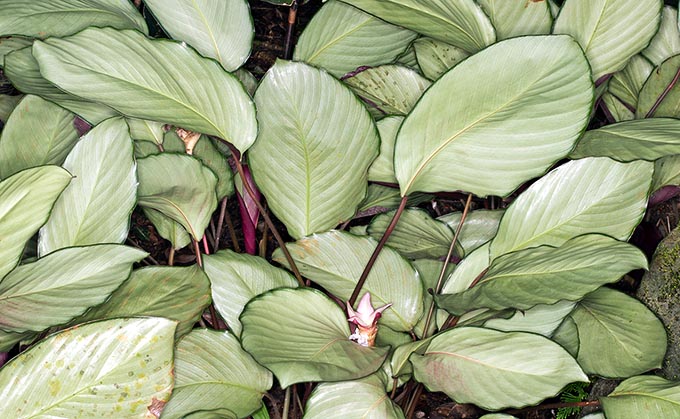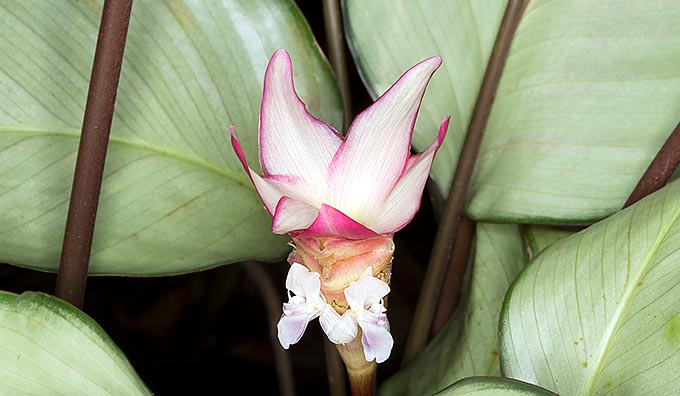Family : Marantaceae

Text © Pietro Puccio

English translation by Mario Beltramini

Calathea ‘Silver Plate’, frequent as edge in the tropics, probably comes from Calathea loeseneri © Giuseppe Mazza
It is an evergreen, perennial, rhizomatous herbaceous horti- cultural variety of unknown origin, forming 40-60 cm tall tufts with ovate leaves with pointed apex, asymmetric in respect to the median, glossy, of silvery olive green colour with thin dark green margin on the upper page, violaceous purple below.
It has long lasting pink inflorescences similar to those of the Calathea loeseneri J. F. Macbr. (1931), from which the variety might come.
Greatly appreciated variety due to the particular colour of the leaves, cultivable in the tropical and humid subtropical climate zones in luminous position, but far away from the direct rays of the sun, as these might cause damage seriously the foliage, on soils rich of organic substance, well drained, aerated, kept humid. It requires protection from the wind, high humidity, 70-80% and constant temperatures, ideal 22-26 °C.

It forms 40-60 cm tufts, with pointed ovate leaves and purple violaceous inflorescences © Giuseppe Mazza
The watering must be frequent in summer, but without stagnations which may cause rottenness, more spaced in winter, but with never allowing the substratum to dry up completely, utilizing preferably utilizing rain water, by reverse osmosis or demineralised at ambient temperature. The fertilizations, duly distributed and alternated, in way to avoid salts accumulations to the roots, are to be done during the vegetative period with hydro soluble balanced products, with microelements, at a ¼ of the dosage suggested on the package.
